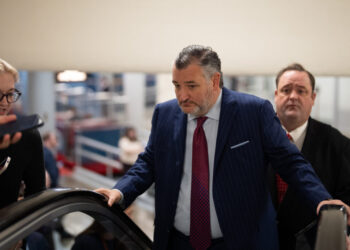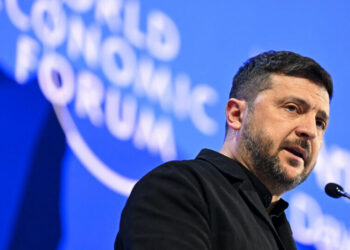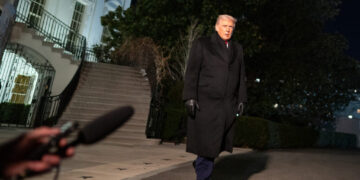The Upside of Professional Rejection
My relationship with rejection, professionally speaking, is complicated. I’m a writer, and although I’ve been hearing “thanks, but no thanks”...
Open Letters: Our Opinion-Writing Contest
What’s bothering you? Who could do something about it? What could you say to them that would persuade them to...
CNN Data Guru Predicts Huge ‘Shocker’ In Midterm Fight
CNN data analyst Harry Enten was stunned as he revealed that Democrats have flipped the GOP’s Trump-led redistricting battle in...
Trump Launches Unhinged Rant at ‘Deranged Animal’ Jack Smith
President Donald Trump lashed out at Jack Smith as a “deranged animal” and demanded he be investigated as the former...
This Red Hot Chili Peppers Track Had to Be Mixed Carefully to Hide ‘Tone-Deaf’ Vocals and Was Later ‘Disowned’ by the Band
Producer Michael Beinhorn worked with the Red Hot Chili Peppers during their early funk-rock years. This was before they began...
Elon Musk says it’s ‘highly likely’ humans figure out how to reverse aging — but there’s ‘some benefit to death’
Elon Musk attended the 56th annual World Economic Forum on Thursday. Denis Balibouse/REUTERSElon Musk said aging is a "very solvable...
Rain in the forecast for Los Angeles. Here’s how long it will last
Drizzly conditions were on tap for the Los Angeles area Thursday morning. A band of showers was moving across western...
Jack Smith Asserts Trump ‘Engaged in Criminal Activity’ in Heated Capitol Hill Showdown
More than a year after his historic prosecutions of Donald Trump were rendered moot by the 2024 presidential election, former...
Internet defrosts jokes as Cruz is seen departing Texas ahead of winter storm
There’s a storm brewing in Texas — and on social media. Sen. Ted Cruz (R-Texas) is again being mocked online...
Zelensky Laces Into Europe, Saying It Must Step Up or Be Left Behind
President Volodymyr Zelensky of Ukraine used a blunt speech before the world’s political and business elites on Thursday to take...














